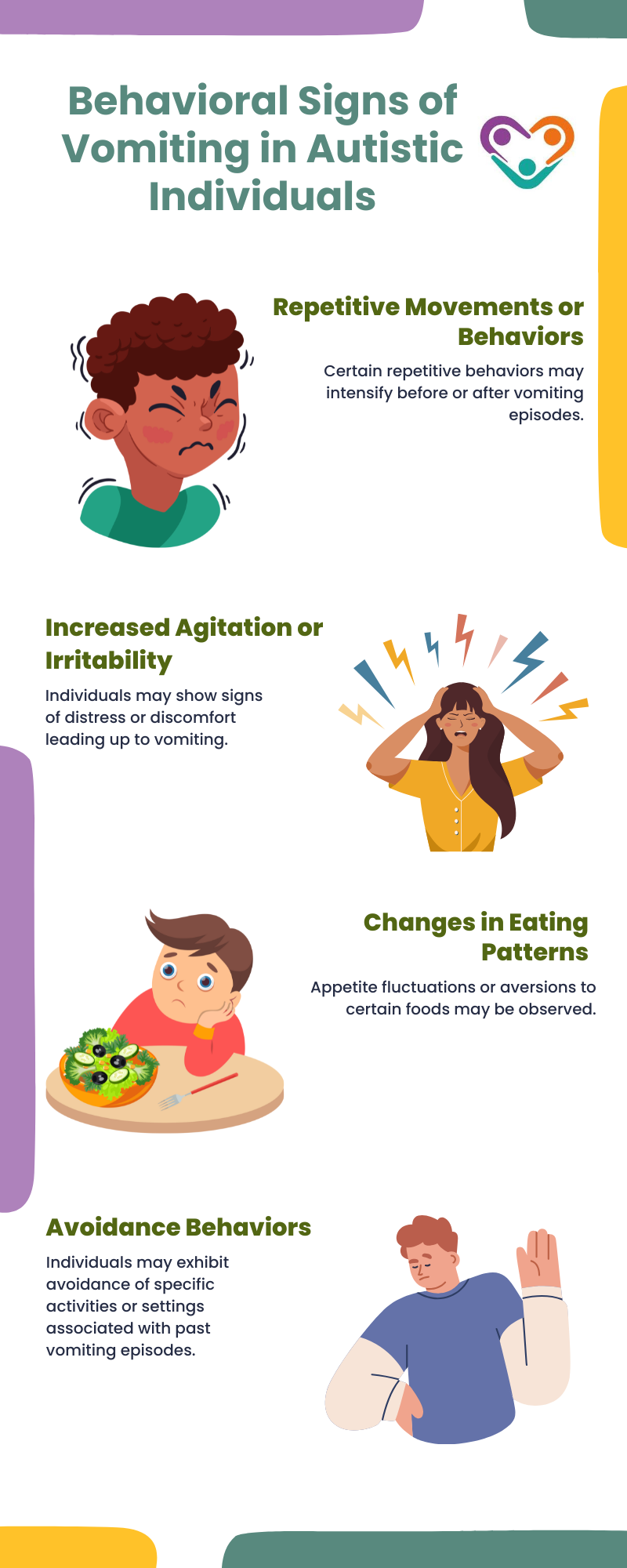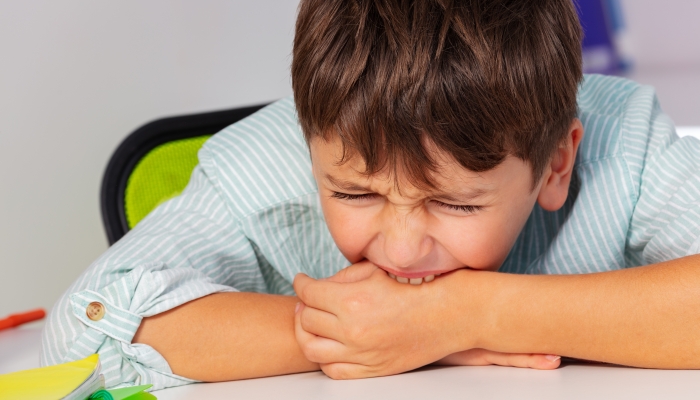Five practical strategies Autism Behavioral Therapy techniques reduce anxiety
Five practical strategies Autism Behavioral Therapy techniques reduce anxiety
Blog Article
Understanding the Impact of Behavioral Autism on Day-to-day Live and Social Communications
You might not recognize exactly how deeply behavioral autism influences daily life and social communications. People on the spectrum typically browse a globe filled with interaction hurdles and sensory overload. These difficulties can lead to aggravation and seclusion, influencing their relationships and general wellness.
Defining Behavioral Autism and Its Features
Behavior autism, commonly referred to as autism range condition (ASD), includes a variety of conditions characterized by obstacles in social interaction, interaction, and repetitive actions. You could notice that individuals with ASD typically battle to translate social hints, which can cause misunderstandings in conversations. They might discover it tough to develop eye contact or engage in little talk, making social circumstances feel overwhelming.
Interaction troubles can manifest in numerous means, from delayed speech advancement to a preference for making use of fewer words. Repetitive habits, such as hand-flapping or shaking, can offer as coping mechanisms to handle stress and anxiety or sensory overload. These qualities can exceptionally impact life, making it crucial for you to understand and sustain those with ASD. By identifying these characteristics, you can promote an environment that promotes approval and urges effective interaction, aiding people with autism flourish in their everyday communications.
The Spectrum of Autism: Understanding Irregularity in Habits
Autism range problem (ASD) isn't a one-size-fits-all diagnosis; it varies extensively among individuals. You may encounter people that are very verbal and engage easily in conversations, while others may prefer solitary tasks or connect non-verbally.
Moreover, the means people with ASD react to sensory input can differ substantially; some may be bewildered by loud sounds or brilliant lights, whereas others flourish in stimulating environments. The range additionally includes distinctions in social communications; some individuals might have a hard time to analyze social cues, while others navigate social settings with relative simplicity. Recognizing this variability is necessary, as it helps you appreciate each person's special experience and tailor support to their particular requirements, fostering a more inclusive setting for everyone.
Interaction Difficulties Dealt With by Individuals With Autism
When you engage with people on the autism range, you might see their one-of-a-kind interaction obstacles. They typically deal with problems with both nonverbal and spoken hints, which can impact their social communications. Comprehending these barriers is important for cultivating much better links and assistance.

Verbal Interaction Problems
Lots of individuals on the autism range experience verbal interaction troubles that can substantially influence their day-to-day communications. Your quantity, tone, or rate may not straighten with social expectations, creating others to misunderstand your intentions. Identifying these obstacles can aid you and your assistance network create methods to improve communication and cultivate far better links with others in your day-to-day life.
Nonverbal Communication Barriers
Verbal interaction isn't the only difficulty individuals on the autism spectrum face; nonverbal interaction obstacles can be just as significant. These difficulties can lead to misconceptions or misconceptions of social signs, making interactions really feel overwhelming or complicated. By dealing with nonverbal communication, you can discover techniques to improve your social experiences and enhance your overall high quality of life.
Social Interaction Influences
Social communications can commonly really feel frustrating as a result of the one-of-a-kind communication challenges faced by individuals with autism. You may fight with interpreting social cues, making it difficult to comprehend mockery or body movement. This can lead to misconceptions or unpleasant moments in discussions. Furthermore, initiating and preserving discussions may feel challenging, triggering anxiety in social scenarios. You might prefer organized settings, making spontaneous communications awkward. It's additionally usual to experience trouble in participating in little talk, which can hinder creating brand-new relationships. Acknowledging these difficulties can aid you discover approaches to improve interaction, such as exercising social abilities in secure settings or making use of aesthetic help - Aba Therapist Near Me. Understanding your requirements permits you to navigate social interactions with better self-confidence and simplicity.
Social Interaction and Connection Building in Autism
While building connections can be testing for people with autism, comprehending their distinct perspectives and communication styles can foster significant connections. You could observe that lots of individuals on the spectrum favor direct communication and may have a hard time look at more info with social signs or tiny talk. By being uncomplicated in your interactions, you can aid create a setting where they really feel comfy.
Make the effort to pay attention and observe how they reveal themselves. This understanding can guide you in steering discussions extra effectively. Participating in shared passions can also work as a bridge to deeper links. Whether it's a leisure activity, a favored show, or a mutual enthusiasm, these typical threads can open doors to friendship.
Daily Life Routine: Navigating Obstacles and Strategies
Navigating every day life regimens can be specifically testing for individuals with autism, particularly when unforeseen modifications take place. You could locate convenience in having a structured routine, as it aids you anticipate what's next. It's normal to really feel overloaded or nervous when interruptions occur. To browse these difficulties, consider carrying out visual routines or checklists. These devices can give quality and reassurance.
Developing a routine that consists of sensory breaks can likewise be helpful. You can plan time-outs throughout your day to charge. It's vital to communicate with those around you, allowing them know your needs and preferences. This assists produce an understanding setting.
Lastly, technique mindfulness techniques to take care of stress and anxiety and stress and anxiety. Straightforward breathing exercises or basing techniques can make a significant difference. By including these approaches, you can improve your daily regimen and lessen interruptions, making life feel much more workable.
Staminas and Capabilities of Individuals on the Autism Spectrum
Understanding day-to-day life regimens is simply one aspect of the autism experience. Numerous people on the autism range possess exceptional toughness and abilities that set them apart.
Additionally, your memory skills usually shine, specifically in areas of passion. Autism Spectrum Therapies. This knack for preserving info can make you an important resource Related Site in areas like art, scientific research, or technology. You may also exhibit strong aesthetic reasoning, allowing you to visualize complicated principles and resolve issues creatively
Furthermore, your unique viewpoint on the globe can promote compassion and understanding in others, enriching social interactions. Embracing these strengths not just improves your confidence yet likewise aids others appreciate the diverse talents you bring to the table.
Producing Inclusive Settings for Individuals With Autism
Creating comprehensive settings for people with autism starts with creating sensory-friendly rooms that deal with their distinct needs. You can likewise cultivate opportunities for social interaction, aiding to construct relationships and links. By making these changes, you'll add to a more welcoming environment for every person.
Designing Sensory-Friendly Spaces
While making sensory-friendly spaces, it's important to show on the special demands of people with autism. Integrate peaceful zones where individuals can pull away and recharge when overwhelmed. Include aesthetic routines or clear signage to assist people browse the space with confidence.
Advertising Social Communication Opportunities
Creating sensory-friendly spaces not just addresses specific comfort however likewise sets the stage for purposeful social communications among people with autism. To promote these interactions, produce comprehensive atmospheres that welcome engagement. Arrange organized tasks, like art courses or group video games, that urge cooperation without frustrating sensory input. Usage aesthetic help and clear interaction to help everybody engage comfortably. Motivate peer mentoring, pairing individuals with autism with supportive peers who can direct them with social situations. In addition, take into consideration hosting normal area events that celebrate neurodiversity, cultivating approval and understanding amongst all participants. By implementing these techniques, you can boost social possibilities, aiding people with autism construct relationships and enhance their social skills in a secure, inviting atmosphere.

Often Asked Inquiries
Just How Can Friends Assistance Someone With Behavioral Autism?
You can support a good friend with behavioral autism by being client, paying attention proactively, and respecting their boundaries. Engage in activities they appreciate, communicate openly, and develop a comfy environment where they really feel valued and recognized.
What Resources Are Available for Moms And Dads of Children With Autism?
You can check out different sources for moms and dads of youngsters with autism, consisting of assistance teams, academic sites, and Autism Therapist regional social work. Attaching with various other parents can likewise supply beneficial understandings and shared experiences to help navigate obstacles.
Can Behavioral Autism Change With Time?

Yes, behavioral autism can transform with time. You may notice changes in interaction, social abilities, and behavior as your kid expands. Early treatment and support commonly play vital functions in these developmental adjustments.
Just How Do Sensory Sensitivities Influence Daily Life?
Sensory level of sensitivities can make day-to-day experiences overwhelming. You may struggle with loud noises or intense lights, bring about anxiety or evasion. Finding settings that accommodate your requirements can substantially enhance your convenience and general every day life.
What Prevail Misconceptions Concerning Behavioral Autism?
You could believe behavioral autism only affects communication abilities, but it's more complicated. Lots of think individuals do not have compassion or knowledge, which isn't real. Understanding these mistaken beliefs assists foster approval and assistance for those on the range.
Behavior autism, usually referred to as autism range condition (ASD), includes an array of problems characterized by challenges in social interaction, communication, and repetitive behaviors.Social interactions can typically really feel frustrating due to the special communication challenges faced by individuals with autism.Creating sensory-friendly rooms not just addresses private convenience however likewise sets the stage for meaningful social communications among people with autism. Encourage peer mentoring, matching individuals with autism with encouraging peers that can assist them with social situations. By executing these methods, you can boost social chances, assisting people with autism construct friendships and enhance their social abilities in a secure, inviting environment.
Report this page